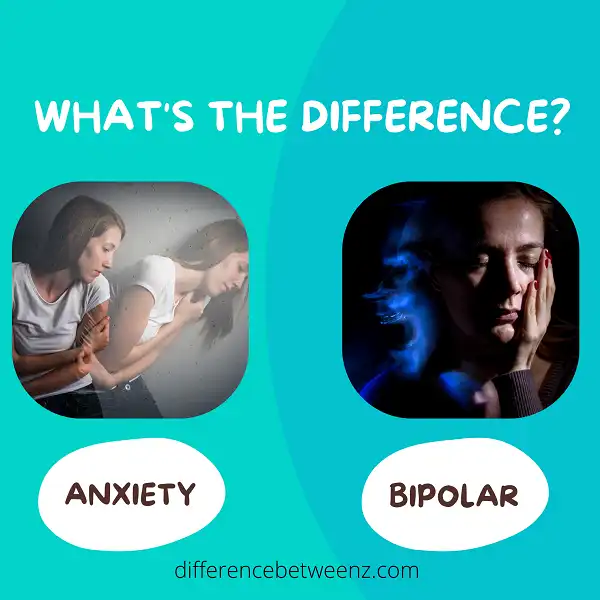Anxiety and bipolar disorder are two very different mental health conditions. However, they are often confused with one another. In this post, we will explore the key differences between anxiety and bipolar disorder. We will also discuss the symptoms of each condition and how they can be treated. If you are experiencing any of the symptoms of either anxiety or bipolar disorder, it is important to seek professional help.
What is Anxiety?
Anxiety is a feeling of unease, such as worry or fear, that can be mild or severe. Anxiety disorders are when this feeling does not go away and can get worse over time. People with anxiety disorders may have trouble sleeping, feel tired all the time, have a hard time concentrating, and feel like their heart is racing. Anxiety disorders are different from normal anxiety. Anxiety disorders are real illnesses that need treatment. They are not the result of personal weakness or a character flaw. Anxiety disorders are treatable, and the vast majority of people with anxiety disorders improve with treatment. However, without treatment, anxiety disorders can get worse and cause serious problems.
What is Bipolar?
Bipolar disorder, also known as manic-depressive disorder, is a mental illness that causes extreme mood swings. People with bipolar disorder alternate between periods of mania, or extreme elation, and periods of depression, or extreme sadness. Bipolar disorder can be devastating, not only for the person affected, but also for their family and friends. left untreated, it can lead to job loss, financial problems, and even suicide. While there is no cure for bipolar disorder, it is a treatable condition. With proper treatment, people with bipolar disorder can live full and productive lives.
Difference between Anxiety and Bipolar
Anxiety and bipolar disorder are both mental health conditions that can cause significant distress and impairment. Although they share some features, there are important differences between the two disorders. Anxiety is characterized by symptoms of fear and worry, whereas bipolar disorder is characterized by episodes of mania or hypomania ( periods of abnormally elevated or irritable mood) alternating with periods of depression. Anxiety disorders can also occur alongside other mental health conditions, such as depression, which is often the case with bipolar disorder. As a result, it can be difficult to diagnose anxiety or bipolar disorder accurately without professional assessment. However, both conditions are treatable with a combination of medication and psychotherapy.
Conclusion
Anxiety and bipolar disorder are both serious mental health conditions that should be diagnosed and treated by a professional. While there are some similarities between the two disorders, they also have many key differences. If you or someone you know is struggling with either anxiety or bipolar disorder, please seek help from a qualified mental health professional.


